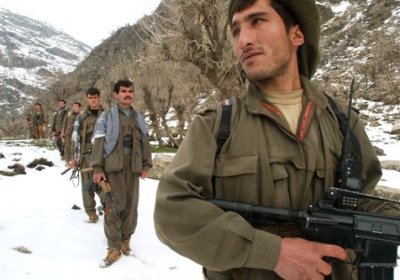The Socialist Alliance released this statement on June 20.
***
The Socialist Alliance in Australia stands in warm solidarity with the Gezi resistance in Istanbul, throughout Turkey and around the world.
We watched in horror as the peaceful occupation of Gezi Park was so savagely attacked by police early this month and in joy as ordinary people of all ages and backgrounds poured onto the streets to defend their precious green space and their democratic rights. We are with you in Gezi.
Turkey
Mark Twain's maxim that "History does not repeat itself, but it does rhyme" is echoing in the streets of Istanbul. The echo is heard in everything that makes Turkey resemble a sequel to the 2011 Egyptian Revolution that toppled assumed President-for-Life Hosni Mubarak.
Turkey and Egypt are of course two very different countries with different leaders, different political systems and different histories. But the revolt of the highly intense, usually apolitical "ultra" football-fan clubs must be noted.
When the Turkish Prime Minister ayyip Erdogan called the protesters in the streets of Istanbul plunderers (çapulcu) on June 2, he contributed a new verb to the English language.
A video clip of the resistance — entitled “Everyday I'm Chapuling” — hit the internet on June 4 with new lyrics written on the pop song “Everyday I'm Shufflin”. And the new English verb was born: to chapul.
Soon after, the word moved to the French language and found a place among such words as liberte, egalite and fraternite: chapulite.
During the early days of the Gezi protests, researchers from the University of Istanbul surveyed 3000 activists in the heart of the struggle around Taksim Square.
Seventy-one percent of respondents described themselves as “pro-freedom” with no affiliation to any organisation, most of them first-time activists. Only 7.1 % said they were a member or supporter of any group.
Barricades on the streets are nothing new to Turkish people. Barricades have been put up against the authorities many times.
Turkey’s government, facing a continuing wave of public protest, which began when the authorities brutally repressed a May Day rally at Taksim Square, must end the confrontation with its own people, and release detained trade unionists, the International Trade Union Confederation and its Global Unions partners said.
Artists, students, intellectuals and citizens of New York City, together with supporters of Occupy Wall Street, came together on June 1 in Zuccotti Park to show solidarity their friends, brothers and sisters who are occupying Gezi Park in Istanbul.
Since May 27, citizens of Istanbul from all backgrounds have been staging a peaceful resistance in Gezi Park, the city's largest public park, protecting it and its trees from a large gentrification project to transform a public park into a shopping center.
This article was first published on June 1 at defnesumanblogs.com. For things to help, please see Amnesty International’s Call for Urgent Help and LabourStart's appeal in support of Turkey's trade unions.
When the humble “Occupy Gezi” (Occupy Promenade Park) protest in Istanbul’s Taksim Square was brutally attacked by police on May 31, protests spread like wildfire throughout other cities and the Turkish left was in the thick of it.
Police raids have targeted members and leaders of Turkey's public sector union KESK in the early morning of February 19, global union solidarity site Labour Start said in an appeal for support
The appeal said: “This new attack against the Turkish trade union movement, carried out by the authorities in 28 cities across the country, resulted in the arrest of at least 100 unionists, including many members of teachers' union Egitim Sen.
The statement was released the Kurdish Association of Australia on January 11 condemning the assassination of three Kurdish activists in Paris. The Kurdish people have long struggled for self-determination in Turkey, and other states that claim parts of historic Kurdistan. Turkey has responded to the Kurdish struggle with brutal repression and moves to wipe out the Kurdish identity.
* * *
On the 9th of January, 2013 three Kurdish women activists ― including a co-founder of the Kurdistan Workers Party (PKK) ― were shot dead in the Kurdish Institute of Paris.
Thousands of people marched through the streets of Istanbul on January 19 to commemorate the fourth anniversary of the killing of journalist and human rights activist Hrant Dink.
Dink’s murder symbolises the rising wave of nationalism and chauvinism in Turkey in recent years.
Dink was an Armenian-Turkish journalist, human rights activist and a prominent member of his community. He was 51-years-old when he was murdered by a 17-year-old right-wing assassin on January 19, 2007 — gunned down outside the office of Agos, a bilingual newspaper that he edited in Istanbul.
On June 1, the Kurdish Workers Party (PKK) announced an end to its 13-month unilateral ceasefire. Since 1984, the PKK has waged an armed struggle against the Turkish state for Kurdish self-determination.
A day earlier, imprisoned PKK leader Abdullah Ocalan announced that he was withdrawing from negotiations. He cited a disconnect between the Turkish government’s promised reforms and continued violent repression of Turkey’s Kurdish population.
- Previous page
- Page 24
- Next page







